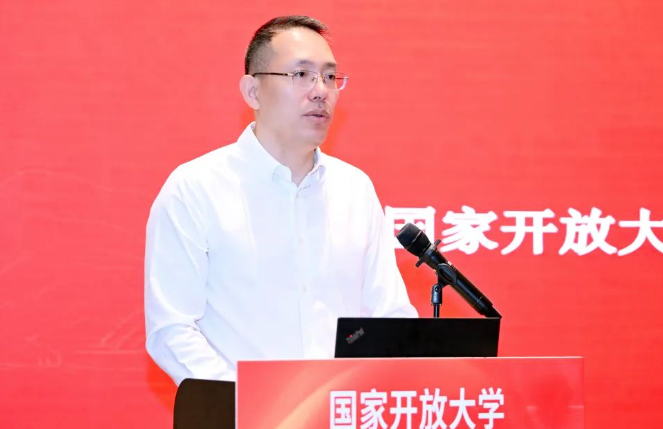 From 26 to 27 March 2025, the Open University of China (OUC) hosted a seminar on education for people with disabilities in Chengdu, Sichuan Province.
From 26 to 27 March 2025, the Open University of China (OUC) hosted a seminar on education for people with disabilities in Chengdu, Sichuan Province.
LI Song, Vice President of OUC, and HUANG Xingguo, President of Chengdu Open University, attended the seminar, together with university leaders and department heads in charge of disabled education from seven regional branches, including Inner Mongolia, Shenyang, Changchun, Shenzhen, Chengdu, Xi'an and Gansu, and three teaching centres affiliated with the School for the Disabled, including Lianyungang, Hefei and Liuzhou, and other relevant staff from the OUC headquarters, more than 30 participants in total. GU Xiaohua, Director of the Academic Affairs Department of OUC, chaired the proceedings.

Vice President LI Song Delivers a Speech at the Seminar
In his speech, Vice President LI highlighted that OUC should proactively take its responsibilities and position disability-inclusive education as a pivotal means of fulfilling its social responsibilities and promoting educational equity. He stressed that OUC is committed to enhancing the accessibility, convenience, service delivery and inclusiveness of higher education for people with disabilities.
Vice President LI called for the university system to scale up and improve quality education for people with disabilities from three key areas:
- Holistic Collaboration: Adopt a holistic approach and actively collaborate with government departments, the Disabled Persons' Federation, and other relevant organisations. Conduct in-depth research on the educational needs of people with disabilities, in terms of both academic qualifications and non-academic qualifications, and use these insights to better serve this group.
- Tailored Education: Implement a diversified but integrated approach with targeted measures. Provide diversified education based on the characteristics and learning needs of students with different types of disabilities, and offer targeted teaching resources, teaching methods, and support services.
- Digital Empowerment: Empower education with digital intelligence while following fundamental educational principles. Develop more teaching resources that meet the learning needs of people with disabilities and explore the application of digital and intelligent teaching methods to improve the quality and efficiency of education for them.
The seven branches and three teaching centres participating in the event shared their achievements and experiences in this field. They identified existing challenges and difficulties in the current educational system and proposed corresponding countermeasures and suggestions. After that, the participants engaged in an in-depth discussion on the future reform and development of education for people with disabilities, exploring innovative approaches and strategies to enhance inclusivity and accessibility in education.
Contributed by Academic Affairs Department
Photo by Chengdu Open University